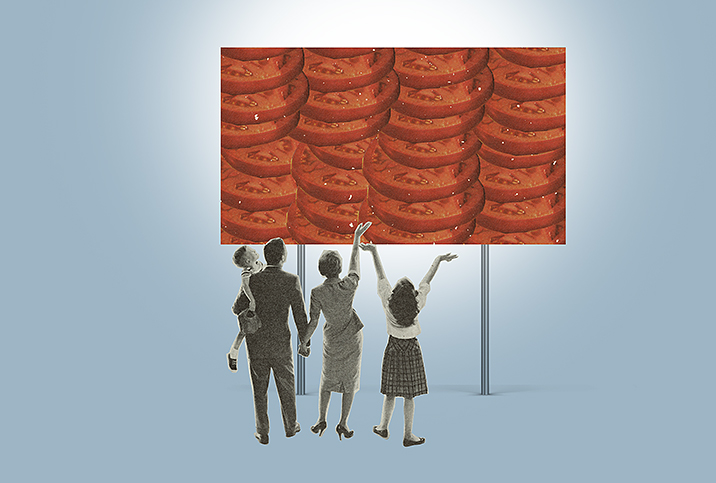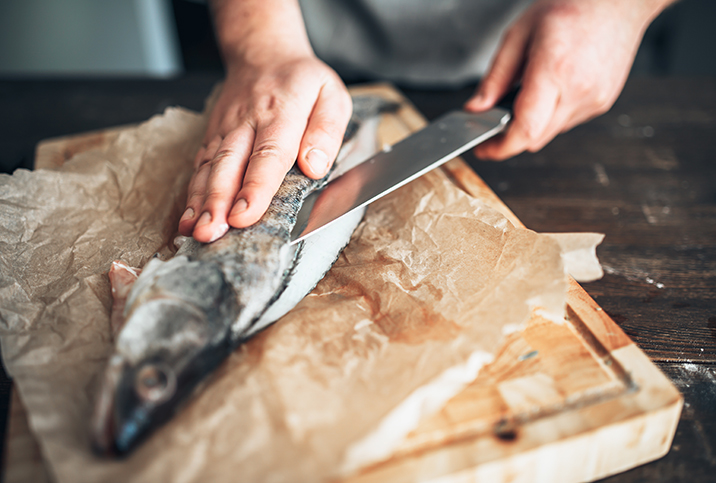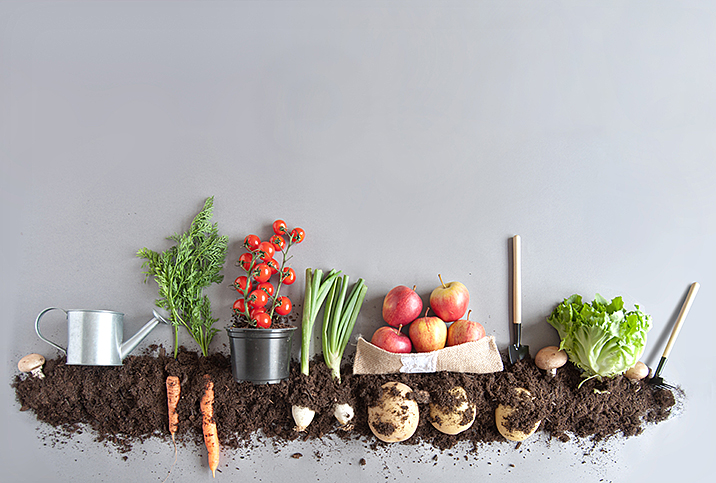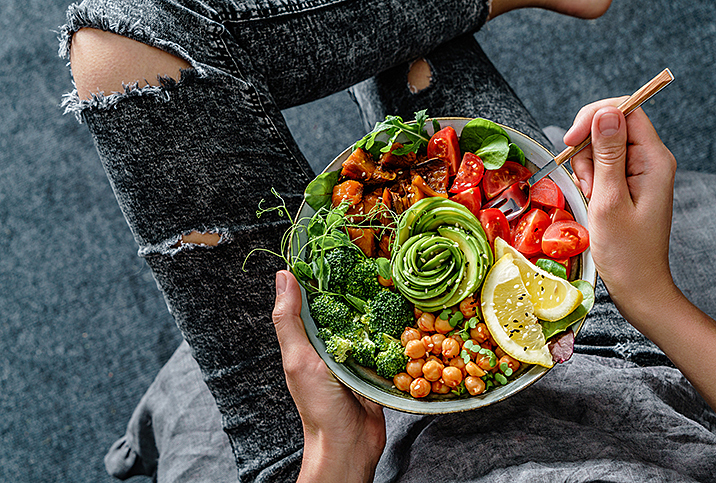The Link Between Diet and Sexual Health
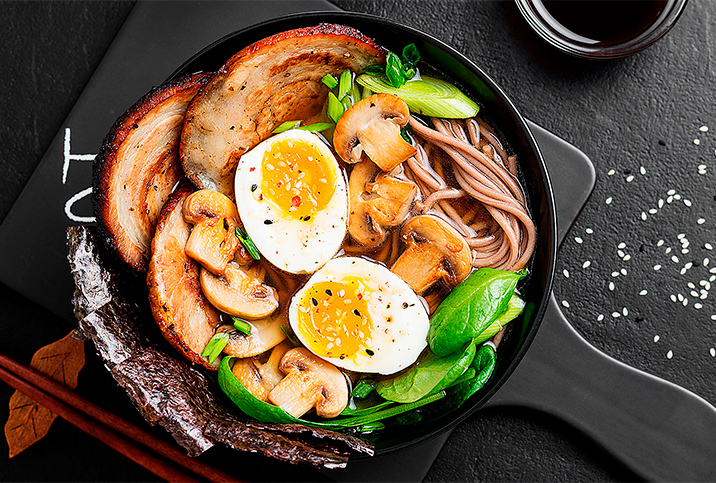
It probably won't come as much of a surprise to learn that what you eat impacts how you perform in bed. Sexual health involves a delicate balance between hormones, heart health, mental health and many other factors. Bottom line: What you fuel your body with is important.
The biggest impact food makes on our sex life is by providing vitamins, protein, healthy fats and other nutrients to support whole-body health. If the body is healthy, sexual health will follow.
Diet and arousal
Since the beginning of recorded history, humans have been looking for ways to enhance sexual performance. From the days of the ancient Chinese dynasties through the Roman Empire to the present day, humanity has been searching for the mystery ingredients that will help increase virility, stamina and overall arousal.
Back in the day, they were looking for aphrodisiacs: foods, drinks and drugs, or a combination of all three, that stimulated sexual desire. Of course, everyone has certain ticks that get them in the mood, but what sets aphrodisiacs apart is they supposedly work for everyone. Think chocolate, wine and maybe even oysters.
Not all aphrodisiacs work in the same way, though. For example:
- Pumpkin: This seasonal snack is high in fiber, potassium and magnesium, which can increase stamina and calm your nerves. Experiments suggest that when men smell pumpkins, they also experience increased blood flow to their penis, according to "The Real Science of Sex Appeal," a book featuring the research of Dr. Alan Hirsch, of the Smell & Taste Treatment and Research Foundation.
- Avocado: This versatile food is high in vitamin B6, which can stimulate testosterone production.
- Celery: Often eaten as a healthy snack, celery contains androstenone, a pheromone in men that some women find attractive, according to the National Institutes of Health.
However, just because these foods have some links to sexual health doesn't guarantee effectiveness for you. There's no harm in adding them to your diet, but science has yet to find a type of food that flips the switch for everyone 100 percent of the time.
Diet and erectile dysfunction
If you have trouble getting or maintaining an erection sufficient for penetrative sex, it's likely food isn't the only thing to blame. Erectile dysfunction (ED) can occur as a result of certain medications, heart problems, diabetes, mental health issues and much more. However, a healthy diet can support the treatment plan your doctor advises. While the general recommendation is to keep your diet balanced, more specific approaches might have certain benefits.
For example, the Mediterranean diet may be the most effective nutritional plan for the prevention and treatment of ED. Vegetables, leafy greens, fruits, beans and fish are common foods eaten in Mediterranean countries such as Greece and Italy. Other common and recommended foods are whole grains, seeds, herbs, spices and extra virgin olive oil.
Specifically, the Mediterranean diet excludes foods with added sugars, refined grains, refined oils, processed meats and all other processed foods in general. Red meat is largely avoided, and poultry, eggs and dairy are consumed only in moderation.
A number of sources support a link between the Mediterranean diet and improved sexual function. In a 2006 study published in the International Journal of Impotence Research, researchers found that men who were assigned the Mediterranean diet experienced a significant reduction in ED compared with those in their control group.
A 2010 study published in the Journal of Sexual Medicine showed the correlation between the Mediterranean diet and ED in a group of men with type 2 diabetes. Researchers learned men who demonstrated greater adherence to the Mediterranean diet had a far lower prevalence of ED compared with the men who didn't. The Mediterranean diet also increases the release of nitric oxide in the arteries of the penis, allowing more blood to flow in and a firmer erection to be achieved.
Some key foods to consider for ED also include coffee, leafy greens, beetroot, walnuts, citrus, pomegranate, watermelon, garlic and dark chocolate.
Diet and sexual performance
When it comes to influencing your sex life with lifestyle changes, the key is improving circulation. Many elements of a traditional Western diet, such as red meat, high-sugar foods, trans fats and dairy, can contribute to problems with the heart or arteries, making sufficient blood flow for arousal more difficult. Researchers have linked typical Western diet foods to an increased risk of low semen quality, obesity and type 2 diabetes, all of which contribute to poor sexual and reproductive health. Instead, opt for heart-healthy foods like almonds and avocados (and their respective oils), and soluble fiber from oats and whole grains.
There's no miracle food that will turn you into a sex god, but keeping an eye on your cholesterol and heart health will likely make a big difference. Also, if you want to increase your libido, choose foods high in zinc and omega-3s, such as beans, nuts, bananas and chickpeas.
Inversely, avoid cheese and cruciferous veggies, or any other food that can make you gassy or bloated for reasons that are self-explanatory.
Alcohol has both short- and long-term effects on sexual performance. Alcohol lowers your inhibitions and may make you feel more daring, confident and sexy. However, it's also a depressant that can make it difficult to achieve and maintain an erection. In women, too much alcohol can cause vaginal dryness, and may delay or prevent orgasm. If you plan on drinking before having sex, limit your intake and avoid beer, for the same reason you might avoid consuming a huge pizza or double cheeseburger before having sex: You'll probably feel too bloated to do much of anything.
Consult your doctor before making any major changes to your diet, especially if you're currently taking prescription medicines. Some foods may interact negatively with medications: Grapefruit, for example, affects the way medications work against high blood pressure or arrhythmia.
Your doctor and/or a nutritionist can work with you to develop a healthy meal plan, whether you just want to develop healthier habits or get better at rolling in the hay.












